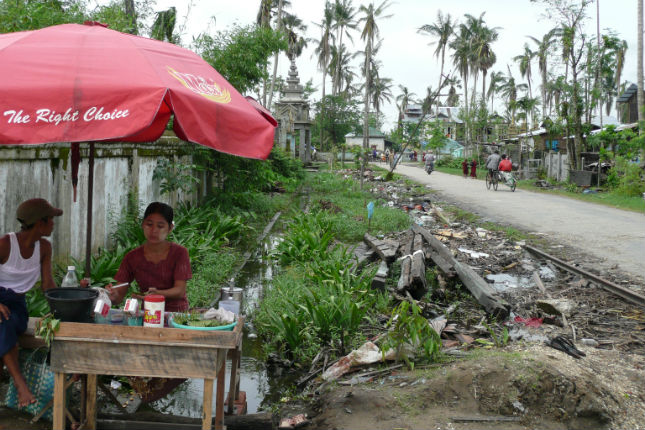-
TOP 5 Posts for November 2017
December 8, 2017 By Julianne Liebenguth
Preparing for natural disasters might help unlock pathways to conflict prevention, write Florian Krampe and Roberta Scassa in New Security Beat’s most read story last month. They make the case for investing in disaster risk reduction at the city level to manage localized risk and empower communities to peacefully respond to crises.
In Asia, snow leopards serve as unlikely—and adorable—ambassadors for environmental peacebuilding; and China struggles to balance demands for coal, water, and economic growth. Around the world, coastal communities on the frontlines of climate change seek innovative solutions; and women facing inequality need reproductive health services to increase both economic and national security.
1. From Disaster Risk Reduction to Sustainable Peace: Reducing Vulnerability and Preventing Conflict at the Local Level by Florian Krampe & Roberta Scassa
2. Thermometers of Change: Snow Leopard Diplomacy in Asia’s High Mountains by Julianne Liebenguth
3. From the Pacific to the Atlantic, Protecting Coastal Communities From Climate Threats by Julianne Liebenguth
4. An Unholy Trinity: Xinjiang’s Unhealthy Relationship With Coal, Water, and the Quest for Development by Meredith Peng
5. Unequal Women, Insecure World: The State of the World’s Population in the Age of Inequality by Jennifer Dabbs Sciubba
Photo Credit: Life slowly returns to normal in Bogale town in the Irrawaddy Delta six weeks after Cyclone Nargis, with houses under repair and small roadside stalls re-opening. June 2008, courtesy of the Australian Department for Foreign Affairs and Trade. Photo by Neryl Lewis, RRT.
Topics: What You Are Reading
 A Publication of the Stimson Center.
A Publication of the Stimson Center.



